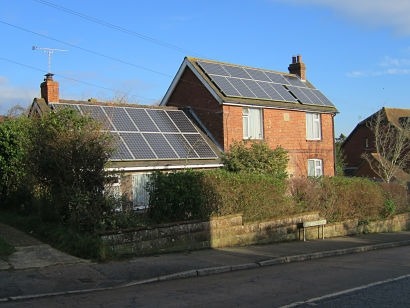
The review was conducted by the Departments for Energy Security and Net Zero, Levelling Up, Housing and Communities and Culture (DLUHC), Media and Sport. It broadly concurs with the view of UK industry trade association Solar Energy UK that rules on installing solar panels on listed homes and homes in conservation areas are unduly complex and restrictive. This means that occupants are currently paying higher energy bills than other households. Easing restrictions is therefore key to ensuring their long-term survival, noted a Ministerial Foreword to the review.
Contributors to the review commonly felt that:
“Obtaining planning permission or listed building consent took ‘too long’, which not only led to frustration but could also mean losing out on financial support. It was suggested that some people have been put off from pursuing retrofit measures for their home by their perception that the planning process is too complex and uncertain to navigate.”
Currently, certain energy upgrades require planning permission, some require separate listed buildings consent, whereas others require neither. However, Listed Building Consent Orders (LBCOs) can provide permission for certain alterations or extensions to listed buildings in England, meaning that a way in which to cut through the red tape is already available.
Local Listed Building Consent Orders (LLBCOs) may also be issued by English local authorities. However, so far only one has liberalised the regime for solar installations: Kensington and Chelsea Council. This allows panels to be installed if they do not face roads and do not protrude more than 20 cm from the roof.
The review speaks positively about extending such provisions, not least because there is “significant variance” in how applications for solar photovoltaics are handled across the nation, “sometimes owing to poor planning knowledge and/ or practices”, it adds.
As an initial response, DLUHC will work with Historic England to issue clearer guidance on which energy efficiency measures require planning permission or listed building consent. Historic England will also publish planning advice for councils on climate change and historic buildings.
A consultation will follow on the role of LLBCOs and the potential for an LBCO to be made granting consent for certain upgrades across the whole of England. This could include solar panels.
“It is plain to see that there is far too much bureaucracy getting in the way of installing solar panels and other energy upgrades, where they can be done in an appropriate and respectful fashion, on England’s older buildings” said Chris Hewett, Chief Executive of Solar Energy UK. “So I am glad to see that the government is pushing forward with making the confusing series of existing rules clearer, while easing them in the longer term.”
The Government’s plan follows legislation issued late last year, The Town and Country Planning (General Permitted Development etc.) (England) (Amendment) (No. 2) Order 2023), which extends permitted development rights for solar power to domestic flat roofs and most commercial buildings, including the establishment of a new permitted development right for solar canopies.
For additional information:
Adapting historic homes for energy efficiency: a review of the barriers

